Did you know? A recent survey found that over 60% of new pet parents felt unprepared for the realities of raising a puppy. Effective puppy care tips aren't just nice to know—they are essential to giving your puppy the happiest and healthiest life from day one. If you want your furry friend to grow into a confident adult dog , mastering foundational care strategies is critical. In this guide, you’ll uncover actionable advice, routines, and expert-backed tips to help new puppy owners thrive at every step. Whether you’re about to bring your puppy home or want to refine your care routine, this guide will equip you with what you need for lasting success.
Did You Know? Over 60% of Pet Parents Report Being Unprepared Without Proper Puppy Care Tips
The excitement of adopting a new puppy is often clouded by the overwhelming number of choices every pet parent faces. From the right dog bed to appropriate puppy food , preparation is key, yet studies reveal most dog owners feel lost in the beginning. Not having a plan for your puppy home setup, feeding schedule, or health needs can lead to unnecessary stress for both you and your new companion. Puppies thrive on security, structure, and attentive caretaking—and the first weeks are crucial in building trust and positive habits.
Understanding this need is what sets responsible pet parents apart. By focusing on proven puppy care tips, you can avoid common mistakes, from feeding errors to delayed health checks. Preparation also supports smooth transitions—making your home welcoming and safe, and preventing behavioral issues before they arise. Whether you’re bringing home a large breed puppy or a tiny toy dog, these tips serve as the blueprint for success.

What Every Pet Parent Should Understand About Puppy Care Tips
- Establishing a safe puppy home environment
- Recognizing your puppy’s needs through every growth stage
- How puppy care tips benefit both you and your dog’s lifelong health
- Steps to bring your puppy home and help them thrive
Every dog owner must recognize that puppy care is not only about short-term needs but about setting a lifelong foundation of health and happiness. A safe puppy home involves more than just a comfy dog bed —it’s about removing potential hazards, providing proper nutrition, and supporting emotional development at each stage. With the right tips, your puppy will feel secure, and you’ll minimize the risk of accidents or stress-induced behaviors.
Consistent routines centered on quality puppy food , potable fresh water , and opportunities to socialize lay the groundwork for a well-adjusted adult dog . Committing to proactive vet visits and considering pet insurance protects you against health surprises—benefiting your wallet and your best friend’s wellbeing. Puppy care tips aren’t just a checklist; they’re an enduring investment in your dog’s future confidence and vitality.
Bring Your Puppy Home: Essential Puppy Care Tips for the First 24 Hours
The first day you bring your puppy home is both thrilling and pivotal. Puppies are sensitive to new environments, so making the initial hours reassuring is crucial for a positive experience that sets the tone for a peaceful transition. Expect your new puppy to be curious—yet a bit fearful. This is the time for patience, gentle introductions, and a structured, soothing atmosphere to help your puppy adjust confidently.
Having a prepared puppy home means minimizing chaos by establishing clear zones for food, naps, and potty breaks. Introduce your pup to their designated dog bed , water bowl, and safe chew toys—even small details like the location of puppy pads can influence their comfort. In these early hours, avoid overwhelming your new arrival with too many new people or loud noises. Instead, maintain a calm routine and frequent, gentle check-ins to build trust, encourage bonding, and reinforce to your puppy that this new home is a safe haven. Sticking to key care tips early on will make every subsequent step easier for both of you.
Preparing a Puppy Home for a Smooth Transition
Creating a puppy-proofed environment isn’t just a good idea—it’s a necessity for the safety and well-being of every new family member. Start by safeguarding electrical cords, stowing away harmful houseplants, and installing safety gates if needed. Clear away any small objects or toxic substances that could be knocked over or chewed. Place a comfortable dog bed in a quiet, draft-free corner to help your puppy feel secure.
Set up a space with an easy-to-clean surface for potty training and make sure you have ample puppy pads or an accessible outdoor spot. Keep food and water bowls in a consistent location and introduce your puppy calmly to these areas, reinforcing their routine. A familiar, consistent environment during the first 24 hours helps minimize anxiety and lays the groundwork for successful potty training and socialization. As an added benefit, an organized setup means less stress for you as you focus on the joys of becoming a confident pet parent .
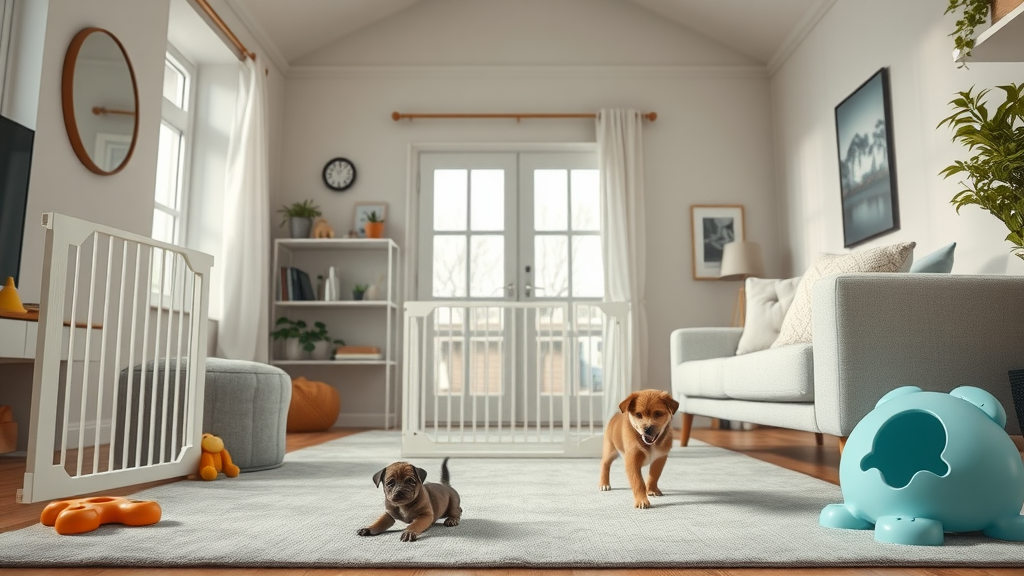
Key Puppy Care Tips to Welcome a New Family Member
When you bring your puppy home , every action influences how your puppy perceives you and their environment. Begin with patience—allow your puppy to explore their new surroundings at their own pace. Introduce them to the household one member at a time so they aren't overwhelmed. Consistency is vital: use the same commands and routines, helping them learn what to expect and fostering a sense of security.
Reinforce positive behavior with gentle praise and treats. Show your puppy where to find their water and food, and demonstrate the intended potty spot right away. Give your puppy plenty of opportunities for rest, since puppies require many naps to support growth. Finally, ensure a quiet, gentle bedtime routine so your puppy feels settled on their first night—a critical step in building trust. The early support you offer as a pet parent shapes your puppy’s confidence, making them more resilient, social, and eager to learn as they grow .
Give Your Puppy the Right Start: Daily Routine and Essentials
Whether you have a large breed puppy or a tiny toy breed, structure and consistency are essential. Puppies thrive with predictable schedules—feeding, potty breaks, training, and playtime should all happen at specific times each day. This regularity delivers comfort, helps with housebreaking, and prevents behavioral problems long-term. A thoughtful daily routine is the backbone of every successful puppy care plan and ensures your puppy feels safe and confident to grow into a well-balanced, sociable dog.
Every essential routine decision—from selecting the right puppy food and establishing a feeding schedule to building in periods for rest—impacts your puppy’s immediate health and long-term development. Keep fresh water available at all times, choose highly rated food designed for developing puppies, and resist the urge to offer table scraps, which can disrupt sensitive digestive systems. Remember, every detail in your routine supports a positive experience and healthy habits for the months and years ahead.
The Ultimate Puppy Care Tips for Nutrition and Feeding Schedule
Nutrition forms the foundation of puppy health. New pet parents often wonder how to select the best puppy food and how frequently puppies should be fed. Puppies should be fed a high-quality, age-appropriate diet, often requiring small, frequent meals throughout the day according to their age and size. For most puppies, this means three to four meals daily until they are about six months old, gradually transitioning to fewer feedings as they approach adulthood.
Consult your veterinarian for guidance on daily food intake, especially for large breed or breed-specific puppies who may need specialized nutrition to support healthy bones and avoid rapid puppy grow phases. Always provide ample fresh water in a clean bowl and monitor your puppy’s appetite for signs of illness or stress. Avoid feeding them human food—stick with balanced dog food to avoid obesity and nutritional deficits. A consistent, healthy diet builds resilience and sets the stage for lifelong health, making it a good idea to check in regularly with your vet as your puppy grows.
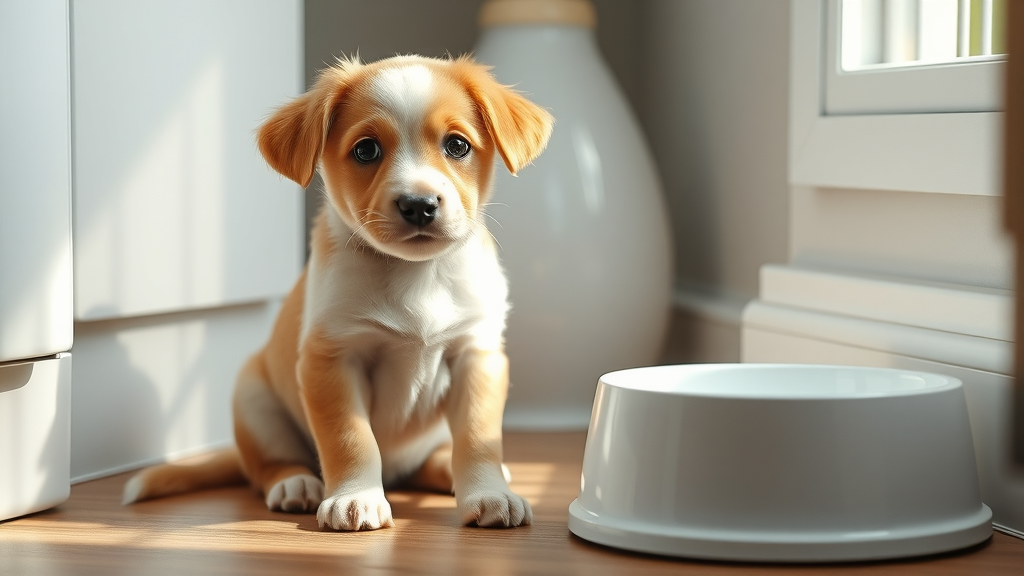
Establishing Potty Training Success: Potty Train and Potty Training Strategies
Potty training is one of the earliest and most important tasks for every new dog owner. The process requires consistency, patience, and positive reinforcement. Puppies generally need to relieve themselves after meals, naps, and play sessions, so frequent trips to their designated spot are vital for success. Start by taking your puppy outside or to their indoor potty pad every two hours, or directly after eating, sleeping, or playing.
Consistency is critical. Praise and rewards after your puppy completes the desired behavior reinforce quick learning while minimizing stressful accidents. Use simple, consistent commands like “go potty” so your puppy connects the phrase with the action. If an accident occurs, never scold harshly—redirect and clean up without fuss. Puppies learn fastest when mistakes are met with patience and successes are lavishly praised. Over time, most puppies can be fully potty-trained by 16-20 weeks of age, but each puppy’s pace may differ. Approach this phase prepared, and soon every outing will be a stress-free routine for both you and your puppy.
Comprehensive Puppy Care Tips on Socialization, Exercise, and Mental Stimulation
Early social experiences and appropriate exercise are essential puppy care tips for developing a healthy, balanced, and confident adult dog. Structured socialization during the critical window (typically 3 to 14 weeks of age) exposes your puppy to people, other animals, and a variety of sights and sounds. When paired with age-appropriate exercise and regular mental challenges, this combination prevents problem behaviors and lays the groundwork for long-term well-being.
Consistent, positive exposure during these stages helps your puppy learn how to interact safely and confidently in different environments. Without proper socialization, puppies may become fearful or aggressive as adults, making this aspect of puppy care just as crucial as nutrition or veterinary visits. An engaged puppy is not only physically healthy, but mentally sharp and emotionally sound.
Why Socializing Your Puppy Early Matters For Pet Parents
Socialization is the key to preventing anxiety and reactivity in adult dogs. Begin by introducing your puppy to new sights, sounds, and smells at a pace that matches their comfort level. Meeting friendly people, well-behaved male dogs, or even visiting a bustling dog park under supervision helps your puppy understand how to behave and builds positive associations. Keep each experience brief and upbeat, always monitoring your puppy for signs of fatigue or stress.
For optimal development, aim to provide daily opportunities for new interactions, including gentle handling, short car rides, and exposure to common household noises. This consistent practice prevents behavioral issues such as phobias and aggression. A well-socialized puppy grows up trusting in their world, confident with change, and ready to meet new challenges—and that’s a gift that lasts a lifetime.
Puppy Grow: Physical Activity Requirements By Age
Puppy energy can feel boundless, but understanding safe activity levels based on age is vital. Young puppies ( weeks of age 8-16) should have multiple short play sessions daily, emphasizing gentle play and basic training. For older puppies and large breed dogs, gradually increase exercise based on their stamina and growth, but avoid over-exercising to prevent injury to sensitive joints.
As your puppy grows, structured walks, playdates with other dogs, and interactive toys offer the physical and mental challenge they crave. Track your puppy’s tolerance and adapt sessions, remembering rules like the “5-minute rule” (five minutes of exercise per month of age, up to twice daily) to prevent overexertion. Physical activity doesn’t just tire out your puppy—it keeps their minds stimulated, bodies healthy, and teaches valuable life skills through positive play.
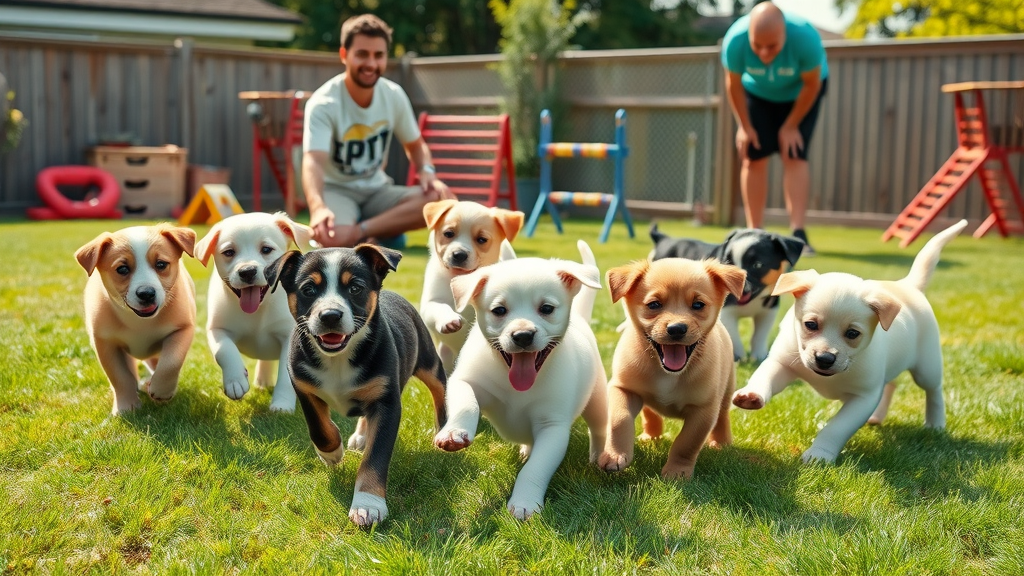
Brain Games and Training Techniques to Give Your Puppy Confidence
Mental enrichment is just as essential as physical exercise. Puppies love puzzles and interactive toys that challenge them to think. Try treat-dispensing toys, simple “hide and seek” games, or practicing basic commands like “sit,” “stay,” or “come.” These games stimulate your puppy’s brain and build trust through fun, shared activity. Early training also accelerates housebreaking and makes future training sessions more productive.
Positive reinforcement is the most effective training method for puppies. Reward the behaviors you want to see—whether with treats, affection, or play—so your puppy associates listening with good things. Short, daily sessions prevent boredom and make learning part of your routine. As your puppy masters new skills, slowly add more distracting environments to keep their confidence growing. An engaged puppy is a happy, well-adjusted companion who thrives on learning and play.
Puppy Health Basics: Puppy Care Tips Every Pet Parent Should Know
Supporting your puppy’s health from their very first day is the cornerstone of good pet parenting. Essential puppy care tips cover routine vet visits, preventive care, and understanding which health investments—like pet insurance —make sense for your dog’s needs. Puppy healthcare basics also include staying current on vaccinations, deworming, and microchipping to protect your puppy and set them up for a healthy adult life.
Establishing a relationship with a trusted veterinarian helps you track growth, identify potential health issues early, and get expert advice on everything from basic commands to nutrition. Health investments made during puppyhood pay off in lower risks of disease, better longevity, and peace of mind for you as a pet parent. With a regular schedule and proactive mindset, you’ll be prepared for whatever puppyhood brings.
Understanding Pet Insurance for Puppies: Is It Worth It?
Pet insurance is rapidly gaining popularity among responsible dog owners who want to protect their investment in their puppy’s health and happiness. Unexpected health events can happen at any stage, and even routine care can add up quickly over your puppy’s first year. With a variety of plans covering accidents, illness, and preventive care, pet insurance offers peace of mind and steadier budgeting for vet visits or emergencies.
Choosing a plan requires careful research. Some cover preventative care, while others are focused on emergencies or hereditary conditions common to certain breeds. It’s always a good idea to compare coverage, deductibles, reimbursement rates, and exclusions before enrolling your puppy. Talk to your vet or other pet parents before choosing—the right insurance can make all the difference if unexpected illness or injury strikes.
| Provider | Coverage Type | Annual Deductible | Reimbursement Rate | Wellness Add-Ons |
|---|---|---|---|---|
| PawSure | Accident & Illness | $200 | 90% | Yes |
| HealthyPaws | Comprehensive | $250 | 70% – 90% | No |
| FetchPet | Hereditary & Chronic | $250 | 80% | Yes |
| Embrace | Preventive + Accident | $100 – $500 | 70% – 90% | Yes |
Routine Vet Visits and Preventative Care: Puppy Care Essentials
Frequent vet visits are the foundation of preventive health. Your first trip, ideally within the week of bringing your puppy home , helps establish a healthcare baseline—including checking for parasites, assessing growth, and starting vaccinations. Routine examinations give your vet a chance to spot subtle issues before they become serious problems and are an opportunity to ask all your puppy care questions.
After the initial checkup, most puppies require monthly visits for vaccines and health monitoring until they reach several months of age. Routine care includes addressing flea and tick prevention, deworming, and discussing spay/neuter options when the puppy is old enough. Consistency in veterinary care means fewer health surprises and happier, more resilient dogs as they mature.

Vaccinations, Deworming, and Microchipping: What to Expect
Vaccines are essential for protecting puppies from potentially fatal diseases such as parvovirus, distemper, and rabies. The puppy vaccine schedule typically starts between 6–8 weeks of age and continues every three to four weeks until at least 16 weeks of age . Your vet will explain which core vaccines are required based on your region and your puppy’s lifestyle.
In tandem with vaccines, deworming protects puppies from intestinal parasites that are common in young dogs. Most puppies will receive dewormer during early vet visits and have fecal exams to ensure efficacy. Microchipping is another key step: it offers lifelong identification, making it much easier to recover your lost pet. Taking care of these essentials early in puppyhood sets the stage for a safe, healthy future.
Common Challenges and Puppy Care Tips to Overcome Them
While puppyhood is rewarding, it’s not without challenges. From constant chewing to separation anxiety, every dog owner will face hurdles along the way. The good news is that the right puppy care tips can help you address problems with calm, positive strategies. Understanding the reasons behind behaviors such as teething, biting, or anxiety allows you to redirect destructive habits into positive learning opportunities.
Puppy care is about more than following a list—it’s about adapting your approach to your individual dog. If you remain patient and proactive, even the most stubborn phase will pass, and you’ll have a stronger bond with your puppy as a result. Remember, giving your puppy plenty of outlets for natural instincts and consistent training makes challenges much easier to overcome.
Addressing Puppy Teething, Biting, and Chewing
Teething is a normal, if sometimes difficult, stage for every puppy. As baby teeth fall out and adult teeth come in (usually between three and six months of age), puppies often mouth and chew on everything—sometimes including hands, shoes, or furniture. The best approach is to redirect your puppy to approved chew toys, keeping a selection of textures on hand to suit their changing needs. Providing frozen washcloths or special teething toys can soothe sore gums.
Set clear boundaries about biting and reinforce gentle play. If your puppy mouths your hand too hard, yelp softly and withdraw attention briefly; this mimics natural correction by other dogs. Gentle consistency and offering alternatives teach your puppy that their actions have outcomes. Remember, patience and repetition are key—and always compliment your puppy when they choose an appropriate toy!
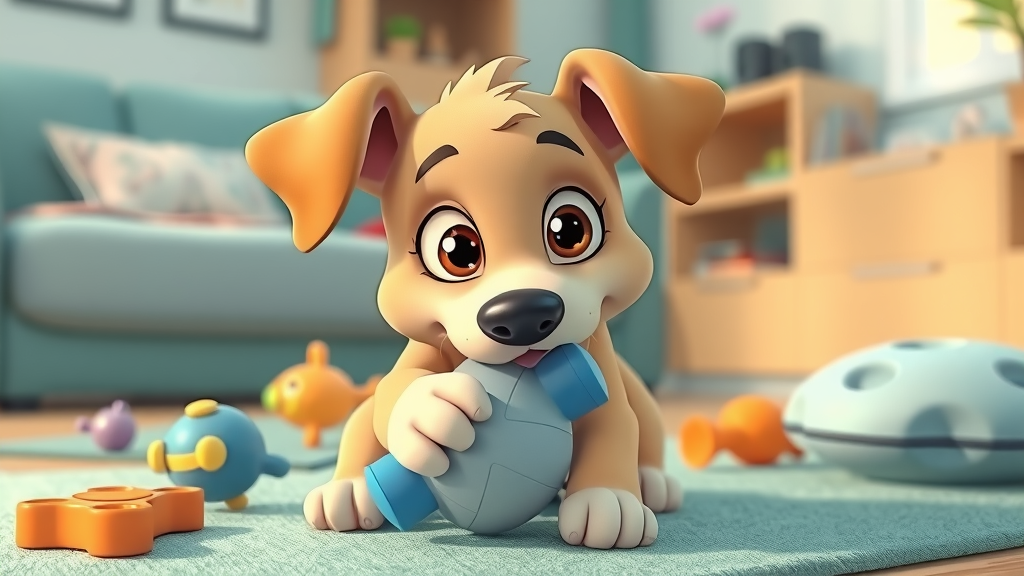
Tackling Separation Anxiety With Puppy Care Strategies
Separation anxiety is a common concern for dog owners. Puppies are naturally inclined to seek comfort from their human family and can become distressed when left alone. To ease anxiety, practice short, positive departures and gradually increase the time spent apart. Provide engaging toys or puzzles and ensure your puppy has a cozy, familiar dog bed to retreat to.
Consistency in your departures and returns helps your puppy realize that alone time is normal—and that you’ll always return. Avoid making a fuss when leaving or coming back, as this can reinforce anxiety. Over time, using these puppy care tips will foster independence and reduce negative behaviors associated with being alone. Investing in early training and gentle exposure to brief absences is the best way to ensure a content puppy (and a calm owner) down the road.
People Also Ask: Key Puppy Care Questions Answered
How do you take care of a puppy for beginners?
Caring for a puppy for the first time means creating a safe space with essential supplies—a dog bed, healthy puppy food, fresh water, and safe toys. Begin with a predictable feeding and potty training schedule, prioritize short and frequent play and training sessions, and establish early socialization by exposing your puppy to new sights and sounds. Schedule an initial vet visit right away and stick to recommended vaccinations and checkups. Patience, positive reinforcement, and consistency are the keys for new pet parents raising a happy, healthy puppy.
What is the 5 minute rule for puppies?
The “5-minute rule” recommends five minutes of exercise per month of age, up to twice daily (e.g., a three-month-old puppy should have two 15-minute sessions per day). This helps protect developing joints and prevents overexertion while ensuring appropriate physical activity for healthy puppy growth. Always monitor for tiredness or signs of stress and consult your vet when increasing activity, especially for large breed puppies.
Where should a puppy sleep the first night?
Your puppy should sleep in a secure, comfortable spot such as a crate or small penned area near your bedroom. Use a soft dog bed with familiar-smelling blankets to ease anxiety and offer reassurance through proximity, especially on the first night. Avoid letting your puppy sleep alone in a new room right away, as the familiarity of your presence will help them settle and reduce night-time stress.
What is the 10 minute rule for puppies?
The “10-minute rule” sometimes refers to allowing your puppy only 10 minutes to eat their meal before removing any remaining food, which can prevent picky eating habits or digestive issues. It may also refer to limiting new training sessions or social exposure to short, focused periods, keeping your puppy engaged without overwhelming them. Structured time limits help young puppies establish positive routines and boundaries early.
Expert Insights: Quotes Every Pet Parent Should Remember About Puppy Care Tips
“Consistency is the foundation of every successful puppy care journey — from nutrition to training, routine is your best tool.”
“A well-socialized puppy today grows into a confident adult dog tomorrow. Invest in your puppy’s early experiences.”
Proven Puppy Care Tips Checklist for Every Pet Parent
- Puppy-proof your home before your new arrival
- Schedule a vet checkup in the first week
- Begin socializing right away
- Stick to a regular feeding and potty training schedule
- Consider pet insurance for unexpected health events
- Practice positive reinforcement and gentle training
- Monitor your puppy’s growth and development
FAQs: Puppy Care Tips for New Pet Parents
How often should I feed my puppy?
Most puppies need to be fed three to four times a day until they are about six months old. After six months, you can transition to twice-daily feedings. Be sure to follow package guidelines for quality puppy food or consult your veterinarian to tailor feeding amounts based on your puppy’s breed and size. Regular meal times help with digestion and training consistency.
What vaccines does my puppy need?
Core vaccines typically include protection against distemper, parvovirus, adenovirus, and rabies. Your veterinarian may also recommend additional vaccines based on your puppy’s risk factors and geographic location. Puppies generally begin vaccines between 6 and 8 weeks of age and receive boosters every three to four weeks until around 16 weeks.
When can I start potty training my puppy?
You can begin potty training as soon as you bring your puppy home, usually around 8 weeks of age. Consistency is key—take your puppy out immediately after meals, play, and sleep, and always praise outdoor potty successes. Be patient, as accidents are normal during the early stages.
Why is routine so important in puppy care?
Routine provides predictability and security for puppies, helping reduce anxiety, support housebreaking, and establish good behavior patterns. Consistent feeding, potty, and play schedules help puppies learn what to expect, making training easier and fostering well-adjusted adult dogs. Routine is the strongest tool in every new dog owner’s care toolkit!
Summary Table: Puppy Care Tips at a Glance
| Area | Milestones & Guidelines |
|---|---|
| Feeding | 3-4 times/day until 6 months, then 2 meals; quality puppy food only, always provide fresh water |
| Exercise | Follow 5-minute rule per month of age, multiple short sessions daily, gentle/moderate play |
| Training | Begin with simple commands (“sit,” “stay”); use positive reinforcement, start potty training day one |
| Healthcare | Vet checkup in first week, vaccines/deworming monthly, consider pet insurance |
| Socialization | Start early (3-14 weeks), introduce new sights/people gradually, reward calm behavior |
Key Takeaways for Every Pet Parent: Ensuring Success With Puppy Care Tips
- Prioritize puppy care essentials from day one
- Consistency in routine and socialization pays lifelong dividends
- Proactive health care, including pet insurance, provides peace of mind
- Support your puppy’s unique growth and development with structured care
Give Your Puppy the Best Start: Next Steps for Responsible Pet Parents
Commit to learning, practicing, and adapting these puppy care tips as your puppy grows. A strong first year sets the stage for a lifetime of happiness, health, and companionship—for both you and your dog.
To further enhance your understanding of puppy care, consider exploring these authoritative resources:
-
“Puppy Care 101” by Best Friends Animal Society offers comprehensive guidance on maintaining your puppy’s cleanliness and warmth, including proper bathing techniques and setting up a safe enclosure. ( bestfriends.org )
-
“General Dog Care” by the ASPCA provides essential tips on feeding schedules, exercise needs, grooming practices, and overall health maintenance to ensure your puppy’s well-being. ( aspca.org )
These resources will equip you with practical strategies to support your puppy’s growth and happiness.
 Add Row
Add Row  Add
Add 






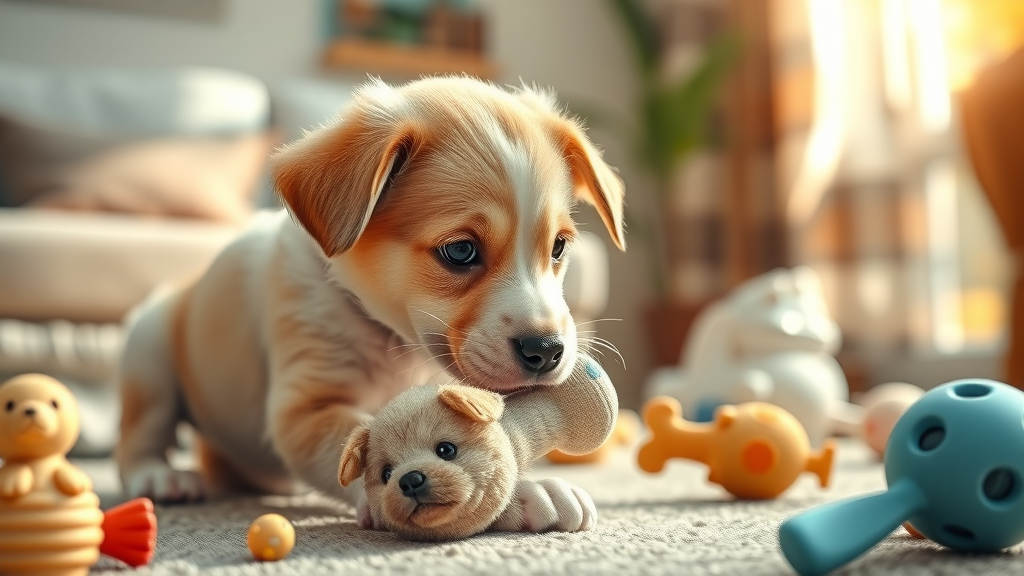

Write A Comment